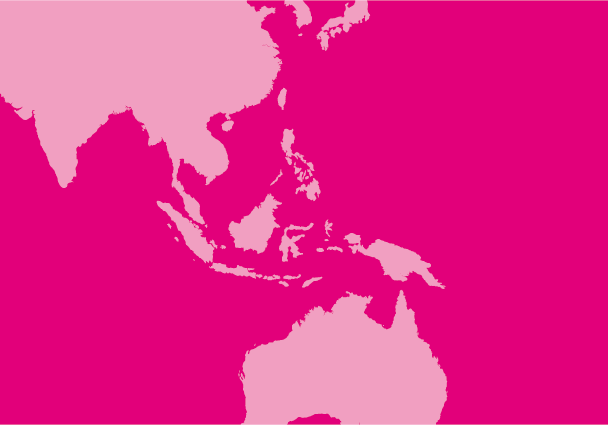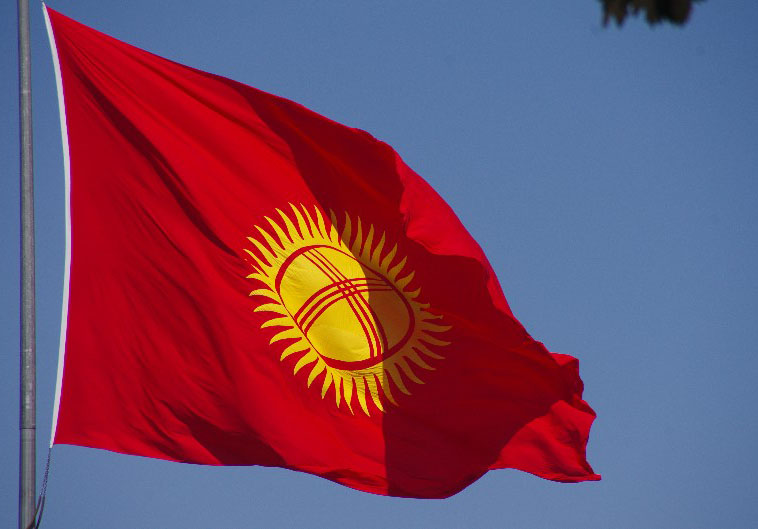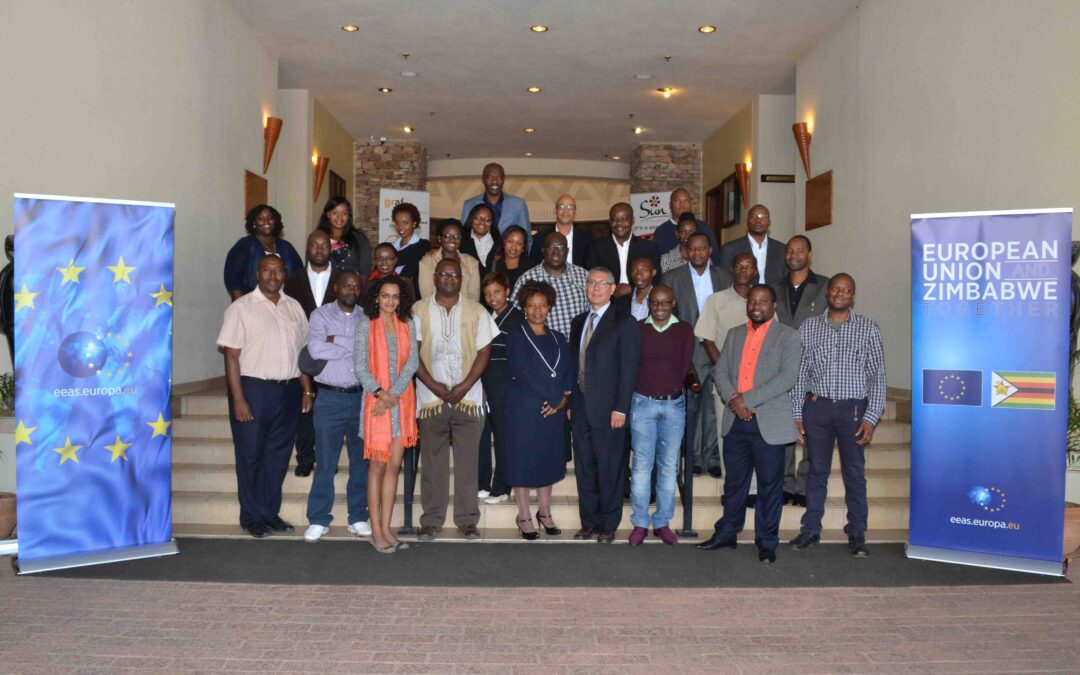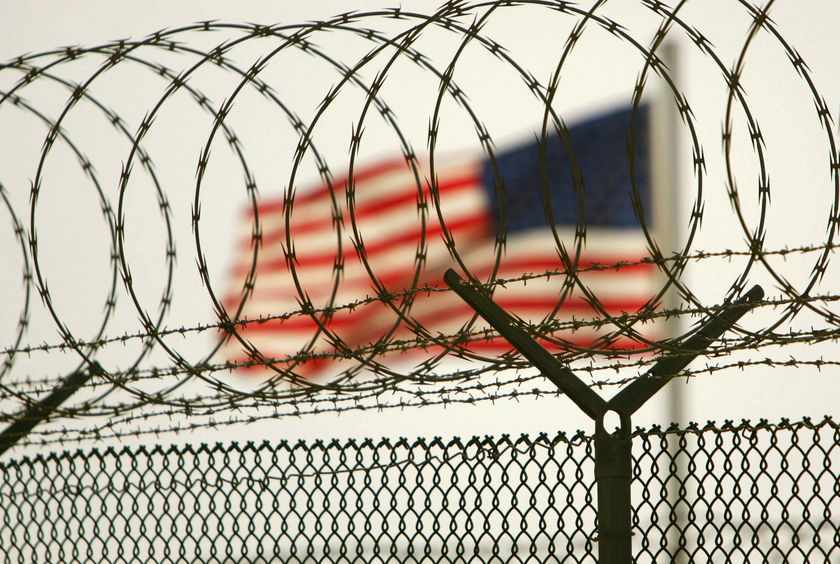
Jun 25, 2015 | News
While welcoming the recent momentum towards finalizing the drafting of a new Constitution, the ICJ said that the Constituent Assembly in Nepal must ensure strong and effective protections for all human rights, consistent with its international human rights obligations.
In addition, they also must ensure that the drafting process is fully inclusive and participatory,
After seven years of political impasse, the devastating earthquake of 25 April 2015 provided Nepali political leaders an opportunity to restore public faith in public authority by reinvigorating the constitutional process.
The country’s four major political parties have now apparently reached agreement on some previously contentious issues and developed a fast-tracked process for the adoption of a new democratic Constitution.
“The horrific earthquake and the government’s response to it has led to a renewed sense of urgency about finalizing and adopting a Constitution that will help create a stable, representative government structure in Nepal consonant with rule of law principles”, Sam Zarifi, ICJ’s Asia director. “The country’s political leaders have a unique responsibility, and opportunity, to adopt a strong, progressive and human rights-compliant constitutional text”.
International law and standards require meaningful public consultation through a transparent and inclusive process. However, the lack of transparency in the current fast-tracked process, combined with the accelerated timeframe, risks undermining people’s ability to participate effectively in the development of the Constitution.
“None of Nepal’s previous Constitutions were the result of meaningful consultation and public participation”, Zarifi said. “The current government must take immediate steps to consult and ensure the participation of all stakeholders, including marginalized groups and minorities”.
The new Constitution must serve to implement the full range of human rights guaranteed under international law. Specifically, while drafting the new constitution, the ICJ urges the Government of Nepal to ensure, among other things, that:
- The new constitution guarantees all of Nepal’s international human rights obligations;
- Permissible limitations on human rights and provisions derogating from rights during emergencies in the new Constitution comply with international human rights laws;
- There is no impunity for gross violations of human rights and serious violations of international humanitarian law committed during the armed conflict, and criminal law is applicable to acts committed at the time;
- The right to effective remedies and reparation for all human rights is recognized;
- Economic, social and cultural rights are recognized as justiciable; and
- Judicial independence is reinforced.
Contact
Nikhil Narayan, ICJ Senior Legal Advisor (Kathmandu), t: +977 9851061167; Email: nikhil.narayan(a)icj.org

Jun 25, 2015 | Новости, Пресс-релизы
МКЮ приветствовала сегодня решения Верховного Суда Кыргызской Республики, признавшего незаконными недавние обыски в домах и в рабочих помещениях адвокатов, и изъятие материалов их дел.
В трех связанных друг с другом делах Верховный Суд оставил в силе выводы Ошского областного суда о том, что обыски домах адвокатов Валериана Вахитов и Хусанбая Салиева и в организации “Бир-Дуйно-Кыргызстан» сотрудниками Государственного комитета национальной безопасности противоречат законодательству Кыргызской Республики.
Суд также отклонил попытки прокуратуры инициировать дисциплинарные меры в отношении судей Ошского областного суда в связи с вынесением ими решений по этим делам.
Данные решения играют важную роль для подтверждения верховенства права в Кыргызской Республике, и будут способствовать укреплению независимости судебной власти и юридической профессии, заявила МКЮ.
«Решения Верховного Суда имеют решающее значение для обеспечения независимости и укрепления юридической профессии и не так давно созданной Ассоциации адвокатов, а также для возможности принятия судьями независимых решений, основанных на законе и фактах», – заявила Ольга Зимарева, один из двух наблюдателей МКЮ, присутствовавших на слушании.
«Это является демонстрацией готовности судебной власти и ее способности эффективно отстаивать верховенство права и защищать фундаментальную роль адвокатов», – добавила она.
Международный пакт о гражданских и политических правах, который является обязательным для Кыргызской Республики, защищает право на справедливое судебное разбирательство, включая адвокатскую тайну.
Кроме того, принцип 16 Основных принципов, касающихся роли юристов, закрепляет обязанность государства обеспечить, возможность выполнения адвокатами всех своих профессиональных функций без каких-либо препятствий, запугивания или неоправданного вмешательства.
Международные стандарты также требуют, чтобы судьи не подвергались дисциплинарным взысканиям за выполнение своих судебных функций, как того добивалась в данном случае прокуратура.
Принцип 2 Принципов ООН о независимости судебной власти разъясняет, что: «Судебные органы решают переданные им дела беспристрастно, на основе фактов и в соответствии с законом, без каких-либо ограничений, неправомерного влияния, побуждения, давления, угроз или вмешательства, прямого или косвенного, с чьей бы то ни было стороны и по каким бы то ни было причинам».
Дополнительная информация
25 марта 2015 года, Умар Фарук, гражданин США и журналист, был арестован сотрудниками Государственного комитета национальной безопасности (ГКНБ), которые изъяли ряд имеющихся у него предметов, включая, визитные карточки адвокатов Валериана Вахитова и Хусанбая Салиева.
28 марта, Умар Фарук был депортирован из Кыргызской Республики в связи с осуществленим сбора информации без аккредитации.
Следователь обратился в суд с ходатайством о производстве обыска в помещениях, занимаемых адвокатами, на том основании, что там могут находиться документы, «необходимые при расследовании уголовного дела». Это было сделано, несмотря на четкие гарантии против подобного вмешательства в соответствии со статьей 29 Закона «Об адвокатуре и адвокатской деятельности Кыргызской Республики», которая закрепляет, что «истребование, изъятие, осмотр, проверка, копирование документов, сбор и использование информации, связанные с юридической помощью по конкретному уголовному делу, допускаются лишь в случае привлечения адвоката в качестве обвиняемого…».
Постановления о производстве обыска в офисе НКО, где работали адвокаты, а также по месту жительства Валерьяна Вахитова и Хусанбая Салиева были вынесены судьями Матисаковым К.М. и Б.Т. Сатыбалдиевым в ходе отдельных заседаний. Сотрудники правоохранительных органов провели обыски в домах адвокатов и офисе правозащитной организации «Бир-Дуйно-Кыргызстан» и изъяли некоторые материалы дел адвокатов.
В заявлении, опубликованном 31 марта 2015 года, МКЮ осудила противоправные действия в отношении адвокатов и подчеркнула, что независимая юридическая профессия имеет основополагающее значение для обеспечения справедливого правосудия и права на справедливое судебное разбирательство для всех лиц, которые предстают перед судом.
Выдача ордеров была успешно обжалована адвокатами в Ошском областном суде, который вынес решение 30 апреля 2015 года. В Верховном Суде, прокуратура требовала подтверждения законности обыска домов и рабочих помещений адвокатов, а также признания законности изъятия материалов дела. Обе гарантии четко защищены национальным законодательством Кыргызской Республики и нормами международного права о роли адвокатов и правом на справедливое судебное разбирательство.
Прокуратура также пыталась добиться возбуждения дисциплинарных мер в отношении судей областного суда, которые вынесли решение в пользу защиты профессиональных гарантий адвокатов, постановив, что обыски и изъятия документов являются незаконными.
На слушаниях в Верховном Суде присутствовали наблюдатели МКЮ: Ольга Зимарева, адвокат, практикующий в Российской Федерации и Алмаз Османова, адвокат в Кыргызской Республике и председатель Лиги юристов Центральной Азии.
24 июня 2015 Верховный суд вынес свои решения, признав обыски и изъятие документов незаконными. Основания для вынесения решения на данный момент опубликованы не были.
МКЮ опубликует юридический анализ дела и решений Верховного Суда в установленном порядке.
Контакты:
Роушин Пиллей, директор Региональной программы МКЮ по Европе, roisin.pillay(a)icj.org
Тимур Шакиров, правовой советник Региональной программы МКЮ по Европе, temur.shakirov(a)icj.org
Kyrgyzstan-Supreme Court Vakhitov Saliyev-News-Press release-2015-RUS (полный текст на русском, PDF)

Jun 25, 2015 | News
The ICJ today welcomed the decisions by the Kyrgyz Supreme Court declaring illegal the recent government searches of the homes and offices of lawyers, and seizures of their legal files.
In three related cases, the Court upheld the findings of the Osh regional court that the searches of the homes of lawyers Valerian Vakhitov and Khusanbay Saliyev and lawyers’ offices at the NGO “Bir-Duyno-Kyrgyzstan” by officers of the State National Security Committee were contrary to Kyrgyz law.
The Supreme Court also dismissed the attempts by the Prosecutor’s Office to initiate disciplinary action against judges of the Osh regional court as a result of their decision in these cases.
The decisions are an important affirmation of the rule of law in the Kyrgyz Republic, and will strengthen the independence of both the judiciary and the legal profession, the ICJ said.
“These decisions of the Supreme Court are crucial for securing the independence and strengthening of the legal profession under the newly established Association of Lawyers and for the ability of judges to issue independent decisions based on law and facts,” said Olga Zimareva, one of two ICJ observers who were present at the hearing.
“It is a demonstration of the judiciary’s willingness and capacity to effectively uphold the rule of law and safeguard the fundamental role of lawyers,” she added.
The International Covenant on Civil and Political Rights, which is binding on the Kyrgyz Republic, protects the right to a fair trial including lawyer-client confidentiality.
Furthermore, Principle 16 of the UN Basic Principles on the Role of Lawyers upholds the duty of States to ensure that lawyers can perform all of their professional functions without intimidation, hindrance, harassment or improper interference.
International standards require that judges should not be subjected to disciplinary action for discharging their judicial function, as was requested by the Prosecutor’s Office in this case.
Principle 2 of the UN Principles on the Independence of the Judiciary makes clear that: “[t]he judiciary shall decide matters before them impartially, on the basis of facts and in accordance with the law, without any restrictions, improper influences, inducements, pressures, threats or interferences, direct or indirect, from any quarter or for any reason”.
Background
On 25 March 2015, Umar Farooq, a United States national and journalist, was arrested by officers of the State National Security Committee (SNSC), who seized a number of items in his possession including the business cards of two lawyers, Valerian Vakhitov and Khusanbay Saliyev.
On 28 March, Umar Farooq was expelled from the Kyrgyz Republic on grounds of collection of information without accreditation.
The investigator sought a search warrant for the premises of the two lawyers on the grounds that they could contain documents “necessary for the investigation”. This was done despite a clear guarantee against such an interference under Article 29 of the Law On Advokatura and Lawyers’ Activity of the Kyrgyz Republic stating that “requisitioning, seizure, examination, inspection, copying documents, collection and use of information related to legal assistance in a particular criminal case are allowed only in the case involving a lawyer as a defendant …”.
Judges K.M. Matisakov and B.T. Satybaldiyev issued warrants to the State National Security Committee to search the NGO premises where the lawyers worked and to search the residence of Valerian Vakhitov and Khusanbay Saliyev, in separate proceedings on 26 and 27 March. Officers of searched the homes of lawyers and the office of the human rights organization Bir-Duyno-Kyrgyzstan” and seized certain case materials of the two lawyers.
In a statement issued on 31 March 2015, the ICJ deplored the unlawful actions against the lawyers and underscored that an independent legal profession is fundamental to ensuring the fair administration of justice and right to a fair trial for all persons who come before the courts.
The issuing of the warrants was successfully challenged by lawyers before the Osh Regional Court which issued its decision on 30 April 2015. Before the Supreme Court, the Prosecutor’s Office sought affirmation of the lawfulness of searchers of lawyer’s homes and work premises as well as recognition of the lawfulness of seizure of case materials, both guarantees clearly protected by national law in Kyrgyz Republic and international law and standards on the role of lawyers and the right to a fair trial.
The Prosecutor also sought disciplinary measures against the judges of the Regional Court who decided in favour of the protection of the professional guarantees of lawyers, ruling that the searches and seizures of documents were illegal.
Two ICJ observers attended the hearings at the Supreme Court: Olga Zimareva, a lawyer practicing in the Russian Federation and Almaz Osmanova, a lawyer in the Kyrgyz Republic and chair of the Central Asian League of Lawyers.
The Supreme Court issued its decisions finding the searches and seizures of documents illegal, on 24 June 2015. The reasons for the decisions have not yet been published.
The ICJ will publish its legal analysis of the proceedings and the judgment of the Supreme Court in due course.
Contact
Róisín Pillay, Director, Europe Programme, roisin.pillay(a)icj.org
Temur Shakirov, Legal Adviser, Europe Programme, temur.shakirov(a)icj.org
Kyrgyzstan-Supreme Court Vakhitov Saliyev-News-Press release-2015-RUS (full text in PDF, Russian)

Jun 24, 2015 | News
The workshop took place from 22-24 June in Victoria Falls and had a special focus on children’s rights as a particularly vulnerable group.
Its primary objective was to create a pool of jurists and activists with the knowledge and ability to undertake strategic litigation before national or regional courts in the interest of victims of human rights abuse by business enterprises in the Southern/Eastern Africa region.
To this end the meeting brought together legal practitioners and Human Rights Defenders involved in human rights legal accountability of business enterprises.
This workshop gathered together a selected group of human rights advocates from Malawi, Zambia, Botswana, Zimbabwe, Uganda, Kenya and Tanzania working on cases relating to business’ human rights abuse.
In East and Southern African countries mining represents a significant part of the national economies and annual GDP.
Tanzania, Malawi, Zambia, South Africa, Botswana and Mozambique have seen the inflowing investments grow in recent years, but it is not clear that this trend has meant improvements in the realization of human rights, especially economic and social rights.
Child labour is endemic, and its occurrence in tobacco plantations subject children to additional hazards to their health and wellbeing.
Mining and oil exploration creates problems to local communities who are not properly consulted or benefit from the activity and usually bear the brunt of environmental degradation and pollution associated with those extractive industries.
Business enterprises are in many instances complicit with State’s violations of human rights.
The meeting also sought to provide legal and other tools to community representatives and litigators who want to start strategic litigation in the public interest.
This flows from the realisation that effective remedy and reparation for victims of business human rights abuses, especially in a transnational context, remains elusive as ever and confronts a series of legal and procedural obstacles.
Access to effective remedy and justice is a priority objective in the context of work relating to the human rights responsibilities of business enterprises.

Jun 24, 2015 | Advocacy
The ICJ joined more than 100 organizations in endorsing a call before the UN Human Rights Council for accountability of US officials responsible for torture and enforced disappearances in the rendition and secret detention programmes and for reparations to be provided for the victims.
The call was made by the American Civil Liberties Union, the Centrol de Estudios Legales and Sociales, Conectas Direitos Humanos, and the Washington Office on Latin America.
The statement can be downloaded here:
USA-HRC29ShortOralStatementTortureRendition-Advocacy-2015-ENG (short version, in PDF)
USA-HRC29StatementTortureRendition-Advocacy-2015-ENG (full text in PDF)
USA-HRC29StatementTortureRendition-Advocacy-2015-SPA (full text in PDF, Spanish)
USA-HRC29StatementTortureRendition-Advocacy-2015-ARA (full text in PDF, Arabic)









